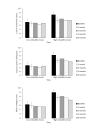Efficacy and Outcomes of a Music-Based Emotion Regulation Mobile App in Distressed Young People: Randomized Controlled Trial
- PMID: 30664457
- PMCID: PMC6352004
- DOI: 10.2196/11482
Efficacy and Outcomes of a Music-Based Emotion Regulation Mobile App in Distressed Young People: Randomized Controlled Trial
Abstract
Background: Emotion dysregulation increases the risk of depression, anxiety, and substance use disorders. Music can help regulate emotions, and mobile phones provide constant access to it. The Music eScape mobile app teaches young people how to identify and manage emotions using music.
Objective: This study aimed to examine the effects of using Music eScape on emotion regulation, distress, and well-being at 1, 2, 3, and 6 months. Moderators of outcomes and user ratings of app quality were also examined.
Methods: A randomized controlled trial compared immediate versus 1-month delayed access to Music eScape in 169 young people (aged 16 to 25 years) with at least mild levels of mental distress (Kessler 10 score>17).
Results: No significant differences between immediate and delayed groups on emotion regulation, distress, or well-being were found at 1 month. Both groups achieved significant improvements in 5 of the 6 emotion regulation skills, mental distress, and well-being at 2, 3, and 6 months. Unhealthy music use moderated improvements on 3 emotion regulation skills. Users gave the app a high mean quality rating (mean 3.8 [SD 0.6]) out of 5.
Conclusions: Music eScape has the potential to provide a highly accessible way of improving young people's emotion regulation skills, but further testing is required to determine its efficacy. Targeting unhealthy music use in distressed young people may improve their emotion regulation skills.
Trial registration: Australian New Zealand Clinical Trials Registry ACTRN12615000051549; https://www.anzctr.org.au/Trial/Registration/TrialReview.aspx?id=365974.
Keywords: anxiety; depression; emotion regulation; mHealth; music; telehealth.
©Leanne Hides, Genevieve Dingle, Catherine Quinn, Stoyan R Stoyanov, Oksana Zelenko, Dian Tjondronegoro, Daniel Johnson, Wendell Cockshaw, David J Kavanagh. Originally published in JMIR Mhealth and Uhealth (http://mhealth.jmir.org), 16.01.2019.
Conflict of interest statement
Conflicts of Interest: None declared.
Figures
Similar articles
-
Efficacy of a Web-Based Guided Recommendation Service for a Curated List of Readily Available Mental Health and Well-Being Mobile Apps for Young People: Randomized Controlled Trial.J Med Internet Res. 2017 May 12;19(5):e141. doi: 10.2196/jmir.6775. J Med Internet Res. 2017. PMID: 28500020 Free PMC article. Clinical Trial.
-
Coping Skills Mobile App to Support the Emotional Well-Being of Young People During the COVID-19 Pandemic: Protocol for a Mixed Methods Study.JMIR Res Protoc. 2020 Oct 8;9(10):e23716. doi: 10.2196/23716. JMIR Res Protoc. 2020. PMID: 32991303 Free PMC article.
-
Using Music to Promote Hong Kong Young People's Emotion Regulation and Reduce Their Mood Symptoms and Loneliness: Protocol for a Pilot Randomized Controlled Trial.JMIR Res Protoc. 2025 Apr 16;14:e67764. doi: 10.2196/67764. JMIR Res Protoc. 2025. PMID: 40239199 Free PMC article.
-
The effects of playing music during surgery on the performance of the surgical team: A systematic review.Work. 2019;64(2):407-412. doi: 10.3233/WOR-192984. Work. 2019. PMID: 31524187
-
Review on Neural Correlates of Emotion Regulation and Music: Implications for Emotion Dysregulation.Front Psychol. 2017 Apr 3;8:501. doi: 10.3389/fpsyg.2017.00501. eCollection 2017. Front Psychol. 2017. PMID: 28421017 Free PMC article. Review.
Cited by
-
Efficacy of digital technologies aimed at enhancing emotion regulation skills: Literature review.Front Psychiatry. 2022 Sep 7;13:809332. doi: 10.3389/fpsyt.2022.809332. eCollection 2022. Front Psychiatry. 2022. PMID: 36159937 Free PMC article. Review.
-
Self-Administered Auricular Acupressure Integrated With a Smartphone App for Weight Reduction: Randomized Feasibility Trial.JMIR Mhealth Uhealth. 2019 May 29;7(5):e14386. doi: 10.2196/14386. JMIR Mhealth Uhealth. 2019. PMID: 31144666 Free PMC article.
-
A School-Based Mobile App Intervention for Enhancing Emotion Regulation in Children: Exploratory Trial.JMIR Mhealth Uhealth. 2021 Jul 14;9(7):e21837. doi: 10.2196/21837. JMIR Mhealth Uhealth. 2021. PMID: 34259642 Free PMC article.
-
Systematic review and meta-analysis of adverse events in clinical trials of mental health apps.NPJ Digit Med. 2024 Dec 18;7(1):363. doi: 10.1038/s41746-024-01388-y. NPJ Digit Med. 2024. PMID: 39695173 Free PMC article.
-
Controlled Trial Examining the Strength-Based Grit Wellbeing and Self-Regulation Program for Young People in Residential Settings for Substance Use.Int J Environ Res Public Health. 2022 Oct 24;19(21):13835. doi: 10.3390/ijerph192113835. Int J Environ Res Public Health. 2022. PMID: 36360714 Free PMC article. Clinical Trial.
References
-
- Institute for Health Metrics and Evaluation Institute for Health Metrics and Evaluation. [2018-09-19]. Global Burden of Disease Compare Data Visualization http://www.healthdata.org/data-visualization/gbd-compare .
-
- Mennin DS, McLaughlin KA, Flanagan TJ. Emotion regulation deficits in generalized anxiety disorder, social anxiety disorder, and their co-occurrence. J Anxiety Disord. 2009 Oct;23(7):866–71. doi: 10.1016/j.janxdis.2009.04.006. http://europepmc.org/abstract/MED/19464142 S0887-6185(09)00101-7 - DOI - PMC - PubMed
Publication types
MeSH terms
Associated data
LinkOut - more resources
Full Text Sources
Medical




